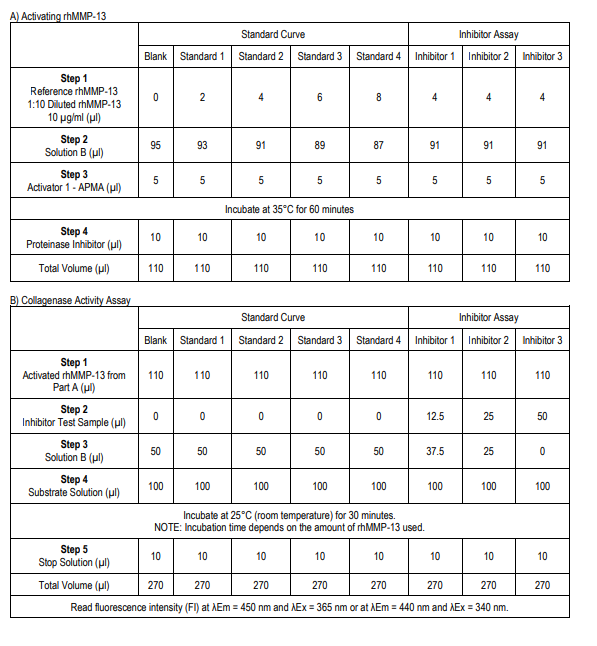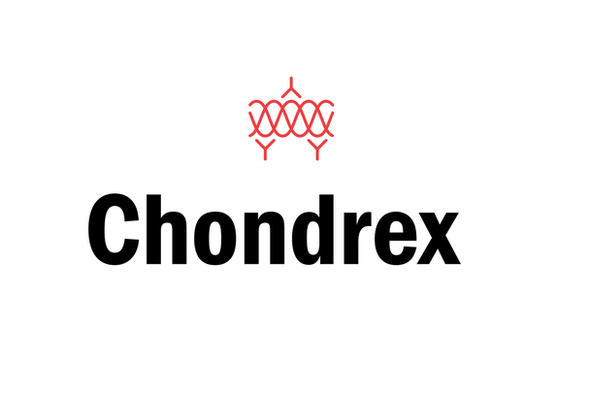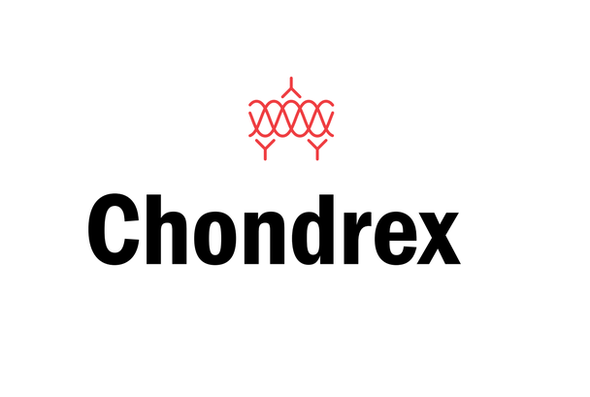Description
MMP-13 Inhibitor Assay Kit - Cat Number: 3003 From Chondrex.
Research Field: ECM
Clonality: N/A
Cross-Reactivity:
Host Origin: N/A
Applications: N/A
Isotype: N/A
Detection Range: N/A
Sample Type: Culture Media, Tissue Homogenate
Concentration: N/A
Immunogen:
PRODUCT SPECIFICATIONS
DESCRIPTION: Assay kit to assess inhibitory activity to MMP-13
FORMAT: 96-well ELISA Plate with non-removeable strips
ASSAY TYPE: Enzyme Assay/Fluorescence-based Assay
ASSAY TIME: 1.5 hours
STANDARD RANGE: Depends on incubation time
NUMBER OF SAMPLES: Up to 44 (duplicate) samples/plate
SAMPLE TYPES: Culture Media and Tissue Homogenate
RECOMMENDED SAMPLE DILUTIONS: Depends on inhibitory activity in samples
CHROMOGEN: N/A (Read at Emission 450 nm/Excitation 365 nm)
STORAGE: -20°C for 12 months (Reference Standard is stored at -80°C)
VALIDATION DATA: N/A
NOTES: Uses fluorogenic peptide substrate
INTRODUCTION
MMP-13 (collagenase 3) is a matrix metalloproteinase found in various tissues such as malignant tumors, osteoarthritic cartilage, rheumatoid synovium, and wounds. MMP-13 production in chondrocytes and synoviocytes is upregulated by stimulation with inflammatory mediators such as IL-1, TNF and retinoic acid (1). MMP-13 has been shown to degrade type I and II collagen and the degradation of type II collagen occurs approximately ten times faster than that of type I collagen (2). The typical 3/4 and 1/4 fragments of collagen are produced as with MMP-1 (collagenase 1). However, MMP-13 also generates a second cleavage of type II collagen that removes three amino acids from the amino terminus of the 1/4 fragment. In addition, MMP-13 degrades aggrecan, the major proteoglycan of cartilage (3).
Inhibitors of MMPs may be useful therapeutics to prevent metastasis of certain cancer cells and tissue damage in inflammatory diseases. This MMP-13 inhibitor assay kit is ideal for assessing inhibitors of MMP-13 and related enzymes. MMP-13 inhibitors can be easily screened and evaluated by simply adding potential inhibitory compounds to the activated recombinant human MMP-13 (rhMMP-13). This kit contains a truncated rhMMP-13 that can cleave the kit’s fluorogenic peptide substrate but is not capable of digesting native collagen molecules. Furthermore, this kit is useful for assaying total collagenase-like proteinase activity in tissue fluids or extracts and cell culture supernatants. Because the fluorogenic peptide substrate used in this kit does not hold a triple helical structure, this substrate is not specific to collagenase and might be susceptible to non-collagenolytic proteinases. Therefore, it is important to know the total activity of collagenase-like proteinases in specimens before proceeding with further experiments.
KIT COMPONENTS
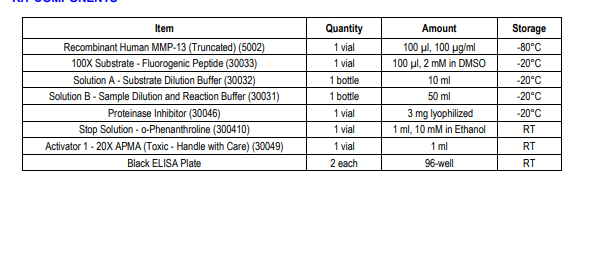
NOTE 1: Warm up all buffers to room temperature before use.NOTE 2: APMA (4-aminophenylmercuric acetate) is widely used to activate latent pro-collagenase. Activator 1 (APMA) contains mercury which is very toxic if inhaled, ingested, or makes contact with skin. Neurological hazard target organs include the kidneys and nerves. Wear suitable protective gloves, clothing, and eyewear.
NOTE 3: Most synthetic, organic compounds are water insoluble. Dissolving test compounds in water is required for screening and testing biological and pharmacological activities. Solvents such as alcohol, DMSO, PEG and PPG may be used to dissolve water insoluble compounds. These test samples must then be diluted with the Sample Dilution and Reaction Buffer (Solution B) prior to incubation. The pH of the sample solution should be 7.5 - 8.0.
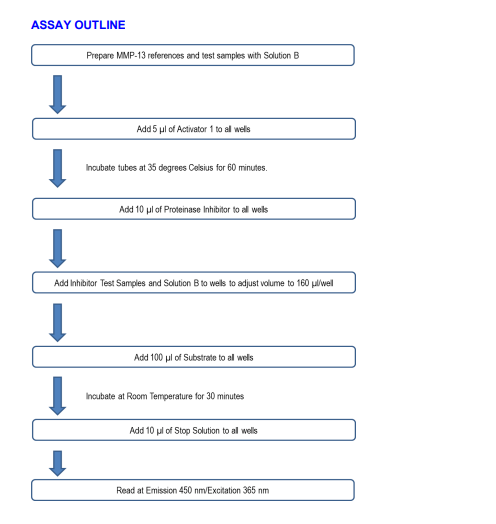
ASSAY PROCEDURE
1. Prepare References and Samples: Designate reactions to be performed in the black 96-well microtiter plate for blank, References, and samples. A sample layout is shown on in the MMP-13 Inhibitor assay sheet at the end of this protocol. Dilute the reference rhMMP13 (100 µg/ml) with Sample Dilution and Reaction Buffer (Solution B) using a 1:10 dilution. Add the proper amounts of diluted rhMMP13 (2-8 µl: 20-80 ng/well) to the wells. Add Solution B to adjust the final volume to 95 µl.
2. Add Activator: Add 5 µl of Activator 1 (APMA) to the wells and incubate for 60 minutes at 35°C. Do not add Activator 1 to undiluted samples because it is a strong alkaline solution.
3. Add Proteinase Inhibitor: Dissolve one vial of proteinase inhibitor in 1 ml of Solution B. Add 10 µl of proteinase inhibitor into all wells to neutralize non-collagenolytic proteinases in solution.
4. Add Inhibitor Test Samples: Add 1-50 µl of inhibitor test samples to the appropriate activated wells.
5. Add Solution B: Add appropriate amounts of Sample Dilution and Reaction Buffer (Solution B) to the wells to adjust the final volume
to 160 µl.
6. Add Substrate: Prepare substrate solution (20 µM) by diluting the 100X Substrate 1:100 with Substrate Dilution Buffer (Solution A).
Add 100 µl (2 nmole) of diluted substrate solution to each well. Incubate at room temperature (25°C) for approximately 30 minutes.
Incubation time depends on the amount of rhMMP-13 used.
7. Add Stop Solution: Stop the collagenase reaction by adding 10 µl of Stop Solution to each well.
8. Read Plate: Determine the fluorescence intensity (FI) at λEm = 450 nm and λEx = 365 nm or at λEm = 440 nm and λEx = 340 nm.
CALCULATING INHIBITION ACTIVITY
Calculate the inhibition % of test samples. Choose the standard point that uses the same amount of rhMMP-13 as is used with the sample. For example, in the Inhibition Assay Sheet, 40 ng/tube (4 µl of 10 µg/ml) is used for both Standard 2 and the inhibitor assays so the fluorescence intensity (FI) values of Standard 2 and samples must be used to calculate inhibition activity. Inhibition % of test samples is calculated by comparing FITest Sample to FIStandard as follows: Subtract the blank FI value from the FI values of standards and test samples to obtain corrected FI values of standards (FIStandard) and test
samples (FITest Sample).
FIStandard = FI (Standard) - FI (Blank)
FITest Sample = FI (Test Sample) - FI (Blank)
Inhibition % = (1 - FIStandard / FITest Sample) x 100
NOTE: If a different amount of rhMMP-13 is used, the amount must be within the linear range of the standards for accurate results. React 1 µg of rhMMP-13 (10 µl of undiluted rhMMP-13, 100 µg/ml) with 100 µl of substrate solution (20 µM), which contains 2 nmole of substrate at 25°C for 30 minutes. The fluorescence intensity (FI) obtained will reflect 100% of substrate (2 nmole) digested. By comparing the FI obtained for individual test samples to the FI of 2 nmole 100% digested substrate (Figure 2), the amounts of substrate (nmole) digested can be calculated.
Example: If the FI of 100% digested substrate was 10495, whereas FI observed in test sample 1 and test sample 2 were 1062 and 3845 respectively, actual amounts of substrate digested by samples are:
1062/10495 x 2 nmole = 0.202 nmole
3845/10495 x 2 nmole = 0.432 nmole
If the protein concentration in sample solution is known, divide the amount of substrate digested by the amount of protein in sample (µg or ng) to obtain specific activity of rhMMP-13 as nmole of substrate per µg or ng of protein.
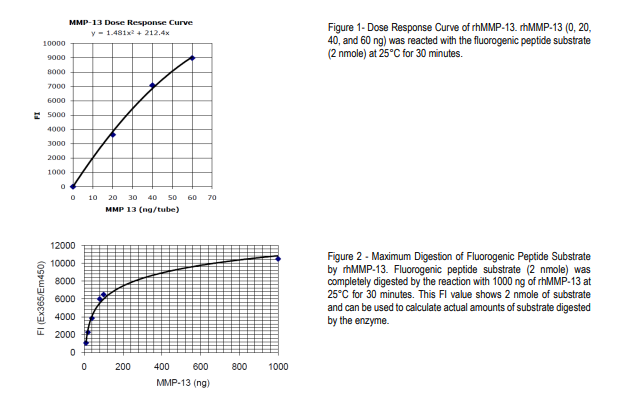
TROUBLESHOOTING
For frequently asked questions about assays and ELISAs, please see Chondrex, Inc.’s Assay FAQ for more information.
REFERENCES
1. M. P. Vincenti, Cloning of the gene for interstitial collagenase-3 (matrix metalloproteinase-13) from rabbit synovial fibroblasts: differential expression with collagenase-1 (matrix metalloproteinase-1). J. Biochem. 331(Pt. 1): 341-346 (1998).
2. P. G. Mitchel, et. al, Cloning, expression, and type II collagenolytic activity of matrix metalloproteinase-13 from human osteoarthritic cartilage. J. Clin. Invest. 97(3): 761-768 (1996).
3. A. S. Fosang, Degradation of cartilage aggrecan by collagenase-3 (MMP-13). FEBS Lett. 380(1-2): 17-20 (1996).
MMP-13 INHIBITOR ASSAY SHEET
This assay sheet is provided as a guide. Researchers will need to optimize the assay for their individual needs.
